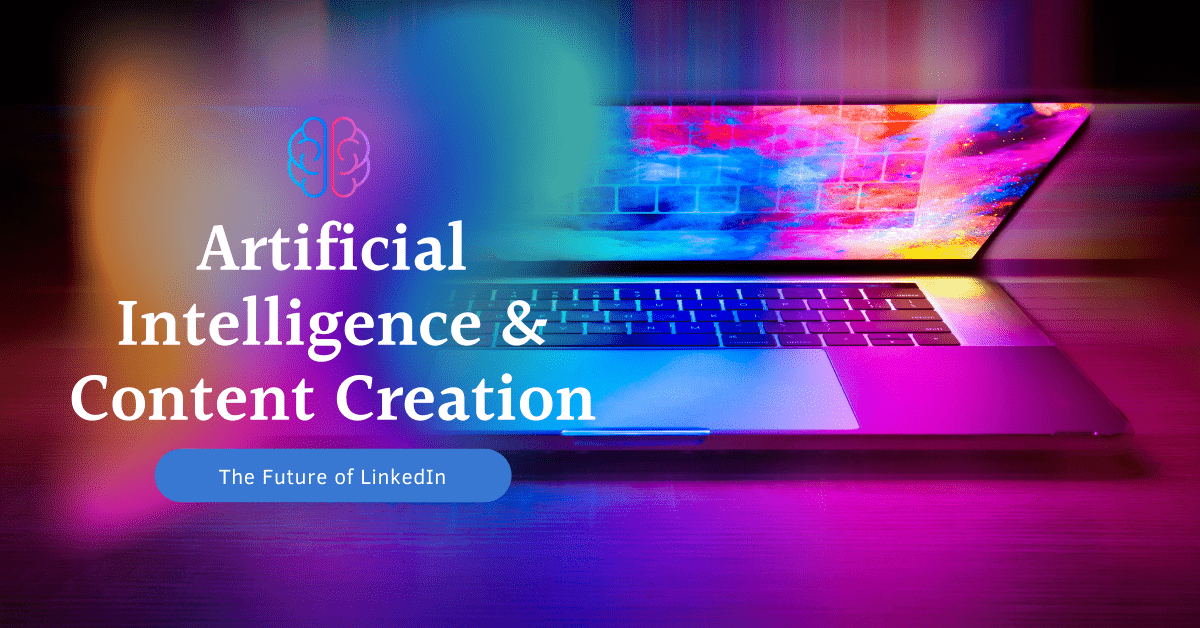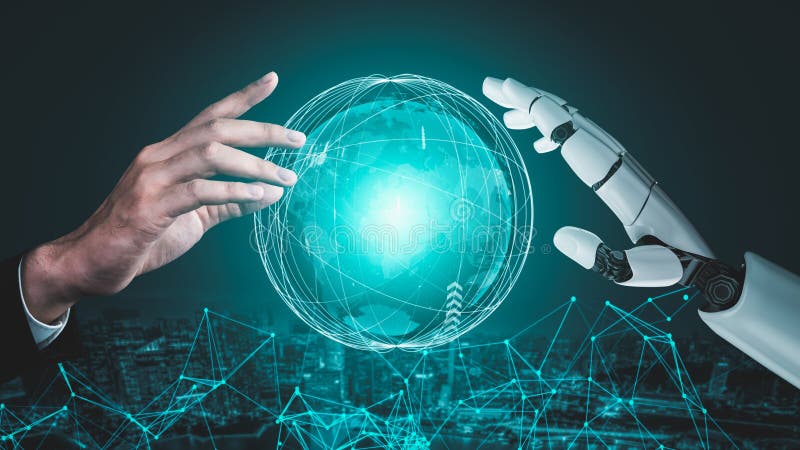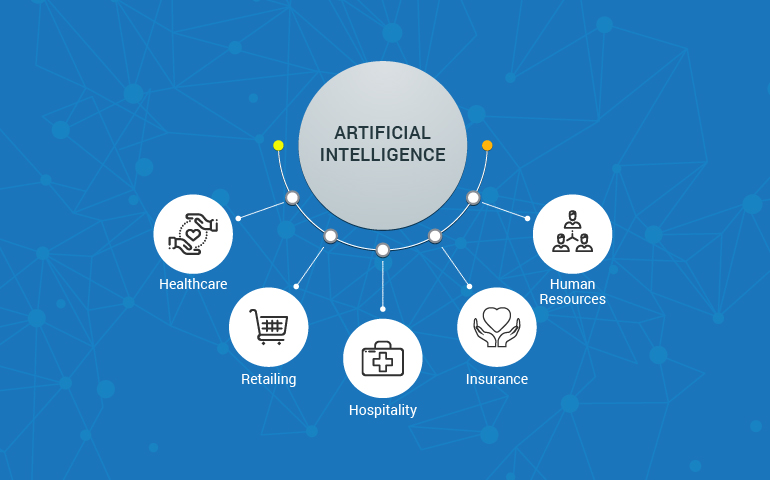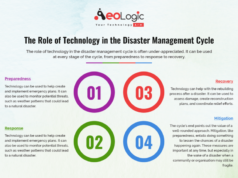Revolutionary AI: 5 Ways Artificial Intelligence is Transforming Content Creation
Related Articles: Revolutionary AI: 5 Ways Artificial Intelligence is Transforming Content Creation
- Revolutionary Smart Fabrics: 5 Key Innovations Transforming Textiles
- Amazing Breakthrough: 5 Revolutionary Augmented Reality Gaming Innovations
- Revolutionary Leap: 5 Key Aspects Of The Autonomous Retail Store Revolution
- Revolutionary Biohacking: 5 Powerful Ways Tech Is Transforming Biology
Introduction
With great pleasure, we will explore the intriguing topic related to Revolutionary AI: 5 Ways Artificial Intelligence is Transforming Content Creation. Let’s weave interesting information and offer fresh perspectives to the readers.
Table of Content
Revolutionary AI: 5 Ways Artificial Intelligence is Transforming Content Creation

Artificial intelligence is no longer a futuristic fantasy; it’s a powerful tool reshaping the landscape of content creation. From generating text and images to optimizing SEO and personalizing user experiences, AI is revolutionizing how we produce, distribute, and consume content. While concerns about job displacement and ethical implications exist, the transformative potential of AI in content creation is undeniable. This article explores five key ways AI is changing the game, examining both its advantages and challenges.
1. Automated Content Generation: Efficiency and Scalability at Unprecedented Levels
One of the most significant impacts of AI on content creation is its ability to automate various aspects of the process. AI-powered tools can now generate different forms of content, including:
-
Text: AI writing assistants can produce blog posts, articles, social media updates, product descriptions, and even creative writing pieces. These tools utilize natural language processing (NLP) to analyze data, understand context, and generate human-quality text. While they may not replace human creativity entirely, they significantly enhance efficiency, allowing content creators to produce larger volumes of content in less time. This scalability is particularly beneficial for businesses and organizations needing to create content for multiple platforms and audiences.
-
Images: AI image generators are transforming visual content creation. Tools like DALL-E 2, Midjourney, and Stable Diffusion can create stunning and original images from text prompts. This technology empowers designers, marketers, and even non-professionals to generate visuals quickly and easily, reducing reliance on expensive and time-consuming traditional methods. The implications are vast, impacting fields ranging from advertising and e-commerce to education and scientific visualization.
-
Videos: AI is also making inroads into video production. AI-powered tools can automate tasks like video editing, transcription, and even the creation of short video clips. This automation streamlines the video creation process, making it more accessible to a wider range of users and reducing production costs.

The efficiency gains from automated content generation are substantial. Businesses can produce marketing materials, website content, and customer support documents at scale, freeing up human creators to focus on higher-level tasks requiring strategic thinking, creativity, and emotional intelligence. However, the reliance on automated tools also raises concerns about the quality and originality of the generated content. While AI can produce grammatically correct and contextually relevant text, it may lack the nuance, originality, and emotional depth that human writers bring to their work. Therefore, a human-in-the-loop approach, where AI assists but doesn’t replace human oversight and editing, is crucial to ensure high-quality and ethical content.
2. Enhanced SEO and Content Optimization: Data-Driven Strategies for Success
AI is revolutionizing search engine optimization (SEO) by providing data-driven insights into content optimization. AI-powered SEO tools analyze search trends, keyword performance, and competitor strategies to identify opportunities for improvement. These tools can suggest relevant keywords, optimize content structure, and even predict content performance. This data-driven approach allows content creators to tailor their content to specific search queries, increasing the likelihood of ranking higher in search engine results pages (SERPs).
Moreover, AI algorithms can analyze user behavior and engagement metrics to identify what resonates with the target audience. By understanding user preferences and patterns, content creators can refine their strategies and create more effective content that achieves its intended goals. This personalized approach enhances user experience and improves conversion rates. However, it is crucial to use AI SEO tools ethically and responsibly, avoiding manipulative tactics that violate search engine guidelines. Over-optimization and keyword stuffing can lead to penalties and harm the website’s ranking.
3. Personalized Content Experiences: Tailoring Content to Individual Needs
AI enables the creation of personalized content experiences, adapting to individual user preferences and behaviors. Recommendation engines, powered by AI algorithms, analyze user data to suggest relevant content, products, or services. This personalized approach enhances user engagement and satisfaction, leading to increased conversions and loyalty. For example, e-commerce websites use AI to recommend products based on past purchases and browsing history, while streaming platforms use AI to suggest movies and TV shows tailored to individual tastes.
Furthermore, AI can personalize the delivery of content, adapting the format, style, and language to suit individual user preferences. This personalized approach can enhance accessibility and inclusivity, ensuring that content is accessible and understandable to a wider range of users. However, the use of personalized content also raises privacy concerns. It is crucial to ensure that user data is collected and used responsibly and ethically, complying with data privacy regulations and obtaining user consent.
4. Content Repurposing and Multi-Platform Distribution: Maximizing Reach and Impact
AI can streamline the process of repurposing content for different platforms and formats. For instance, a blog post can be automatically converted into a social media update, a video script, or an infographic. This reduces the time and effort required to create content for multiple channels, maximizing reach and impact. AI tools can also optimize content for specific platforms, adjusting the length, format, and style to suit the platform’s characteristics and audience. This multi-platform distribution strategy ensures that content reaches the widest possible audience, maximizing its potential impact.
5. Enhanced Content Editing and Proofreading: Ensuring Accuracy and Quality
AI-powered editing and proofreading tools can significantly enhance the quality and accuracy of content. These tools can identify grammatical errors, spelling mistakes, and stylistic inconsistencies, ensuring that content is polished and professional. Some tools can even suggest improvements to sentence structure and clarity, enhancing the overall readability and impact of the content. While these tools cannot replace the judgment and expertise of a human editor, they can significantly streamline the editing process, freeing up human editors to focus on higher-level tasks. This combination of AI-assisted editing and human oversight ensures high-quality and error-free content.
Conclusion: Navigating the Future of Content Creation
The transformative impact of AI on content creation is undeniable. From automating repetitive tasks to enhancing personalization and optimization, AI is empowering content creators to produce high-quality content more efficiently and effectively. However, it is crucial to approach the adoption of AI responsibly, addressing ethical concerns related to job displacement, data privacy, and the potential for bias in AI algorithms. The future of content creation lies in a collaborative approach, where AI augments human creativity and expertise, rather than replacing it entirely. By embracing the potential of AI while mitigating its risks, we can harness its power to create a more engaging, accessible, and impactful content landscape. The key lies in using AI as a powerful tool to enhance human capabilities, not to replace them. The human element – creativity, critical thinking, and emotional intelligence – remains crucial in ensuring high-quality, ethical, and impactful content creation.

Closure
Thus, we hope this article has provided valuable insights into Revolutionary AI: 5 Ways Artificial Intelligence is Transforming Content Creation. We appreciate your attention to our article. See you in our next article!
google.com








